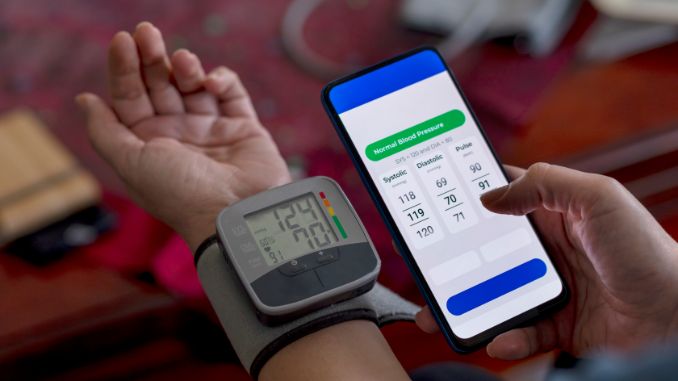The healthcare industry is at a pivotal point in 2025, driven by emerging healthcare trends 2025. It is blending cutting-edge technology with evolving care models to address critical health risks and improve overall well-being.
Moreover, digital health technologies are crucial in reshaping the ways we treat patients, manage medical costs, and deliver mental health support.
In this post, I’ll share insights from industry experts, practical applications, and what healthcare organizations are doing to adapt to these emerging trends.
Healthcare Industry Outlook
The healthcare industry is poised for transformative changes, driven by an aging population, escalating healthcare costs, and then rapid technological advancements.
Healthcare organizations are increasingly shifting their focus towards value-based care, a model that emphasizes quality and outcomes over the traditional volume and fee-for-service approach.
This paradigm shift is expected to lead to substantial investments in digital health technologies, such as electronic health records (EHRs) and remote patient monitoring (RPM) [3], to enhance patient care and reduce costs.
Healthcare organizations are leveraging EHRs to streamline patient data management, improve care coordination, and enhance clinical decision-making.
Meanwhile, RPM technologies are enabling continuous monitoring of patients’ health conditions, providing real-time data that can prevent hospital readmissions and then reduce emergency visits.
These advancements in healthcare trends 2025 are not only improving patient outcomes but also driving operational efficiencies and cost savings across the healthcare industry.
As the industry continues to evolve, healthcare providers and health system leaders must adapt to these changes.
They must embrace digital health tools and value-based care [4] models to meet the growing demands of an aging population and then rising medical costs.
However, the future of healthcare lies in innovative, patient-centered solutions that prioritize quality, efficiency, and sustainability.
1. The Power of AI in Healthcare
Artificial intelligence (AI) [2] and predictive analytics are critical to redefining patient care and then operational efficiencies. Healthcare providers are leveraging AI for advanced analytics, improving care management, and streamlining administrative work.
- Practical Applications: AI-driven tools are being used for diagnostics, such as identifying heart disease through digital platforms and predicting health conditions with digital twins.
- Example: Google’s DeepMind has shown remarkable accuracy in diagnosing rare diseases, gaining traction among healthcare leaders.

2. Remote Patient Monitoring (RPM)
Remote patient monitoring expands access to care while reducing operational costs for healthcare facilities. By integrating wearable technology and then digital tools, healthcare organizations can prioritize patient convenience and bridge care gaps.
- Real-World Use: RPM devices like Abbott’s FreeStyle Libre help patients monitor glucose levels, reducing emergency visits.
- Impact on Health Plans: Most health plans now cover RPM, supporting its adoption among provider organizations.
- Outcome: Improved overall health and then reduced medical costs.

3. Value-Based Care: Key Healthcare Trends 2025
Value-based care is revolutionizing the healthcare delivery model by focusing on providing high-quality, patient-centered care while simultaneously reducing costs.
Unlike traditional fee-for-service models that incentivize the quantity of services provided, value-based care rewards healthcare providers for delivering efficient and effective care that improves patient outcomes.
On the other hand, one of the most prominent examples of value-based care is Medicare Advantage, which has seen a surge in popularity. Over 35 million people are enrolled in these programs.
Medicare Advantage plans offer comprehensive coverage, including preventive services, chronic disease management, and wellness programs, all designed to improve health outcomes and reduce medical costs.
Healthcare systems and provider organizations are actively developing and implementing value-based care models that prioritize patient outcomes, aligning with healthcare trends 2025.
Besides, these models encourage collaboration among healthcare providers, promote the use of evidence-based practices, and leverage data analytics to track and improve performance.
By focusing on value rather than volume, healthcare providers can deliver more personalized and effective care, ultimately leading to better health outcomes and lower costs.
As the healthcare industry continues to embrace value-based care, it is essential for healthcare providers and then organizations to stay ahead of the curve, adopting innovative strategies and technologies that support this patient-centered approach.
Finally, the shift towards value-based care represents a significant step forward in creating a more sustainable and effective healthcare system for the future.
4. Personalized Medicine and Genomics
Advanced analytics and genomic data are driving the growth of personalized medicine, tailoring treatments to individual genetic profiles.
Clinical Trials: Pharmaceutical companies are conducting trials to address rare diseases with targeted therapies.
Value-Based Care: Personalized medicine aligns [5] with alternative payment models by reducing the total cost of ineffective treatments.
Patient Perspective: “Knowing my treatment plan was built around my DNA gave me greater control over my health,” shares patient Amy Carter, who benefited from pharmacogenomics.
Advancements:
- Gene therapies are providing cures for rare diseases.
- Pharmacogenomics ensures medications are more effective with fewer side effects.
Case Study: CRISPR technology is being used in clinical trials to treat inherited conditions, offering hope to millions.

5. Telehealth and Virtual Care
The pandemic accelerated the adoption of telehealth, but its growth rate hasn’t slowed. Virtual care platforms are now integral to care delivery and mental health services.
- Behavioral Health Services: Telehealth [1] makes mental health support more accessible, addressing behavioral health needs efficiently.
- Regulatory Changes: The Affordable Care Act and the Inflation Reduction Act enable sustainable solutions by reimbursing virtual care at competitive rates.
- Health System Leaders Speak: “Virtual care isn’t just convenient; it’s essential for closing care gaps,” says Mark Evans, CEO of a major health system.
Telehealth is no longer just an alternative but a cornerstone of modern healthcare systems, providing both primary and mental health services.

6. Robotic and Minimally Invasive Surgeries
Robotic-assisted surgeries and minimally invasive techniques [6] are transforming operating rooms by improving precision and reducing recovery times.
Technological Highlights:
- Systems like the Da Vinci Surgical Robot enable highly precise procedures.
- AI-assisted planning enhances surgical outcomes.
Expert Opinion: “These technologies minimize patient discomfort and operational inefficiencies,” says Dr. Megan Liu, a leading robotic surgeon.

7. Tackling Rising Costs with Operational Efficiencies
With medical costs growing and prescription drug spending rising, healthcare leaders are under pressure to find sustainable solutions.
- Digital Health Tools: Advanced electronic health records (EHRs) and data science are reducing administrative work and enhancing price transparency.
- Alternative Payment Models: Provider organizations are shifting to value-based care to manage operational costs while delivering high-quality outcomes.
- Case Study: A Deloitte study shows that implementing digital platforms saved more than half of mid-sized hospitals’ operational expenses.
8. Longevity and Preventive Care
Healthcare organizations are focusing on preventive care, a key aspect of healthcare trends 2025, to address health risks like air pollution and heart disease.
- Behavioral Health Integration: Programs combining physical and mental health support are gaining traction.
- Health Systems’ Role: Expanding access to preventive screenings and wellness programs has proven cost-effective.
- Future Outlook: Companies like Altos Labs are exploring new technologies to improve overall well-being and then extend life expectancy.
8 Advances in Mental Health and Behavioral Health Integration
Mental health services are being seamlessly integrated into primary care, aligning with healthcare trends 2025 and addressing the urgent call for holistic health solutions.
Innovations:
- Virtual therapy platforms offer greater convenience and accessibility.
- Comprehensive care models prioritize mental well-being alongside physical health.
Example: More than half of healthcare systems have adopted telehealth solutions specifically for mental health.
9. Cybersecurity in Healthcare
With more patient data stored electronically, cybersecurity remains a top priority [7] for healthcare providers.
- Challenges: Increased cyber threats targeting EHR systems and digital health tools.
- Solutions: Advanced encryption and AI-driven threat detection systems are being widely adopted.
- Expert Opinion: Dr. Eric Tan, a cybersecurity consultant, notes, “Protecting patient data is paramount for trust and compliance.”

Conclusion
The top healthcare trends in 2025 reflect the industry’s shift towards innovative, patient-centered solutions. From AI and RPM to personalized medicine and digital health tools, these emerging trends are addressing the urgent call for sustainable solutions, price transparency, and greater control over care delivery.
Healthcare providers, leaders, and patients alike must adapt to these advancements to ensure a future of improved overall health and well-being. Let’s embrace these changes and lead the healthcare industry into a brighter, healthier future!
Boost your focus, memory, and mental clarity with our 14-Day Brain Health Quick Start Program! This comprehensive digital download provides actionable steps, expert tips, and tools to jumpstart your brain health in just two weeks. Don’t wait—empower your mind today! Download now and take the first step to a sharper, healthier you!

FAQs
How AI Could Be Used in Healthcare?
AI aids in diagnostics, predictive analytics, personalized care, and automating tasks like imaging and data analysis.
Advantages of AI in Healthcare
- Enhances accuracy and efficiency.
- Reduces costs and errors.
- Enables personalized treatments and better access to care.
- How AI Reduces Human Error
- AI standardizes processes, analyzes data precisely, and flags risks for timely action.
How Genomes Personalize Healthcare
Genomes guide tailored treatments, predict health risks, and optimize drug efficacy.
Importance of Genomics
Genomics enables precision medicine, improves disease understanding, and supports targeted therapies.

Rick Kaselj MS, is a leading kinesiologist and injury specialist as well as co-creator of the best-selling Unlock Your Hip Flexors program. Rick creates exercise programs that help people heal injuries and eliminate pain, so they can go back to living a full, active, healthy life.



